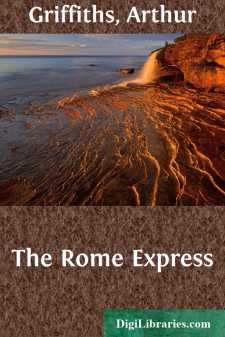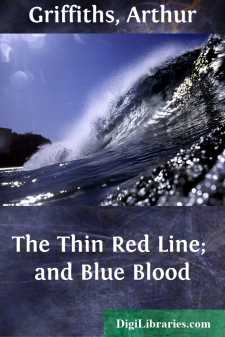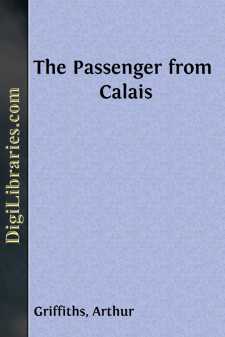Categories
- Antiques & Collectibles 13
- Architecture 36
- Art 48
- Bibles 22
- Biography & Autobiography 813
- Body, Mind & Spirit 142
- Business & Economics 28
- Children's Books 13
- Children's Fiction 10
- Computers 4
- Cooking 94
- Crafts & Hobbies 4
- Drama 346
- Education 46
- Family & Relationships 57
- Fiction 11828
- Games 19
- Gardening 17
- Health & Fitness 34
- History 1377
- House & Home 1
- Humor 147
- Juvenile Fiction 1873
- Juvenile Nonfiction 202
- Language Arts & Disciplines 88
- Law 16
- Literary Collections 686
- Literary Criticism 179
- Mathematics 13
- Medical 41
- Music 40
- Nature 179
- Non-Classifiable 1768
- Performing Arts 7
- Periodicals 1453
- Philosophy 64
- Photography 2
- Poetry 896
- Political Science 203
- Psychology 42
- Reference 154
- Religion 513
- Science 126
- Self-Help 84
- Social Science 81
- Sports & Recreation 34
- Study Aids 3
- Technology & Engineering 59
- Transportation 23
- Travel 463
- True Crime 29
Arthur Griffiths
Arthur Griffiths (1838–1908) was a British military officer and crime writer, known for his works on military history and prison life. He authored several books, including "The Chronicles of Newgate" and "Mysteries of Police and Crime," which reflected his extensive experience as an inspector of prisons. Griffiths also wrote novels and was a prolific contributor to Victorian popular literature. His works often blended elements of true crime with historical narrative, making him a significant figure in 19th-century crime writing.
Author's Books:
Sort by:
by:
Arthur Griffiths
CHAPTER I The Rome Express, the direttissimo, or most direct, was approaching Paris one morning in March, when it became known to the occupants of the sleeping-car that there was something amiss, very much amiss, in the car. The train was travelling the last stage, between Laroche and Paris, a run of a hundred miles without a stop. It had halted at Laroche for early breakfast, and many, if not all the...
more...
by:
Arthur Griffiths
CHAPTER I. THE COMMISSARY IS CALLED. In the Paris of the first half of this century there was no darker, dingier, or more forbidding quarter than that which lay north of the Rue de Rivoli, round about the great central market, commonly called the Halles. The worst part of it, perhaps, was the Rue Assiette d'Etain, or Tinplate Street. All day evil-looking loafers lounged about its doorways, nodding...
more...
by:
Arthur Griffiths
CHAPTER I. [Colonel Annesley's Story] The crossing from Dover to Calais had been rough; a drizzling rain fell all the time, and most of the passengers had remained below. Strange to say, they were few enough, as I saw on landing. It was a Sunday in late July, and there ought to have been a strong stream setting towards Central Europe. I hardly expected to find much room in the train; not that it...
more...




